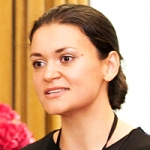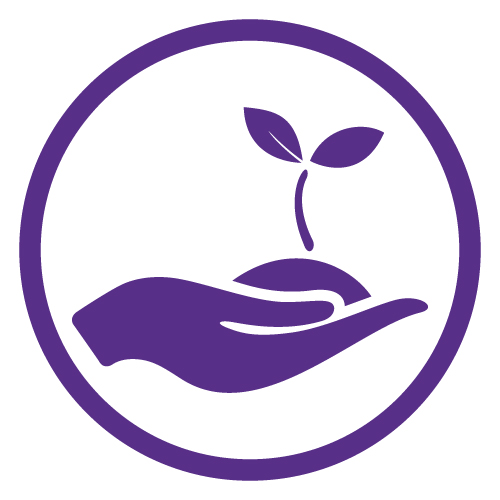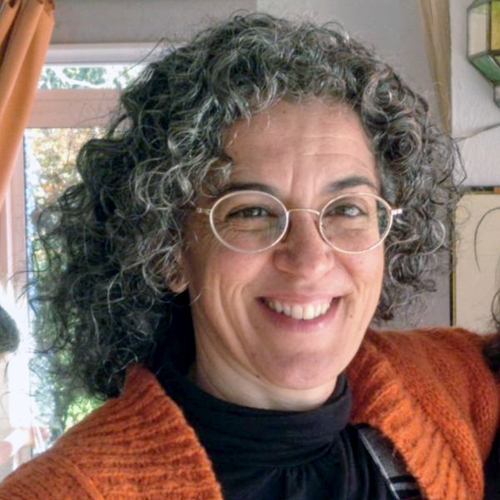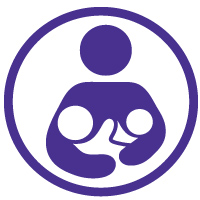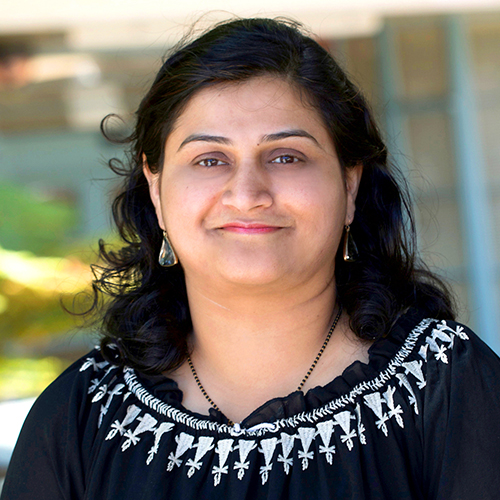 IBCLC Detailed Content Outline: Development and Nutrition / Infant Focused CERPs - Section I A
IBCLC Detailed Content Outline: Development and Nutrition / Infant Focused CERPs - Section I A
Access CERPs on Development and Nutrition / Infant for the IBCLC Detailed Content Outline recertification requirements. On-demand viewing of the latest Development and Nutrition / Infant focused IBCLC CERPs at your own pace.
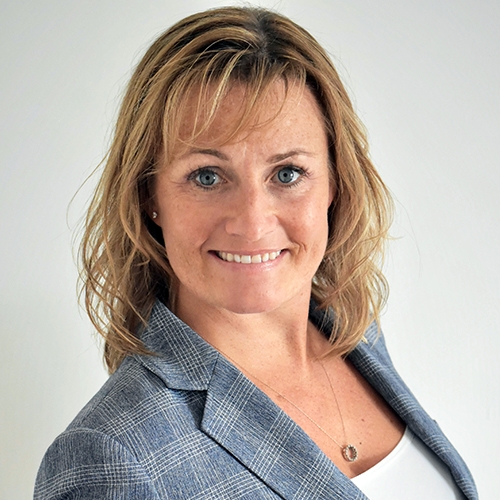
From Head to Toe It's All Connected: Pediatric TMJD, Tongue Tie, and Chiropractic Care

Dr. Jenna Davis is a Family Chiropractor and owns a highly successful family wellness multidisciplinary clinic, Acorn Family Health and Wellness Centre, in Oakville, Ontario. Dr. Davis has a focus on Preconception, Infertility, Pre- and Postnatal care, Pediatrics, Retained Primitive Reflexes, Infant TMJD and Women’s Health. Dr. Davis loves working with families in all stages and has a unique ability to educate her practice members so they feel heard, honoured and understand how chiropractic can improve their function and life. She has a passion for educating and is an avid lecturer both in and out of her office. Dr. Jenna Davis is a mother, author, entrepreneur, educator and is a sought after speaker internationally sharing information on many topics including the Power of Communication, Infertility, Pediatrics, Retained Primitive Reflexes, Infant TMJD, TOTs (Tethered Oral Tissues), Team Approach to Health and Wellness, and Women’s Health. Dr. Davis created a technique in 2016, the P.I.P.S. Technique (Pediatric Intraoral Palate Specific Technique) specifically to assist with Infant TMJD, Sphenoid Fault, Tongue-tie, Lip-tie, Dural Tension and Oral Motor and Oral Sensory Challenges. Dr. Davis has develooped a unique approach to combine sensory, motor, developmental and function into the care and approach to her practice members. Dr. Davis is also the creator of Baby Boom Creations, a company that develops and provides products to assist patients and practitioners in office and at home. Dr. Davis has been a featured speaker on many stages in Canada, the United States, Australia and the UK. She prides herself on her continual quest for the newest information and research and is a life long learner. Dr. Davis has done extensive postgraduate work and continues to expand and grow her knowledge base and resource team to give the best care possible to her practice members and the audiences she has the honour to present to.
Every day in practice Dr. Jenna Davis witnesses how TOTs and Pediatric TMJD, when not addressed, may lead to postural changes, mouth breathing, and may impact craniofacial growth, posture, spinal alignment, development and lead to overall compensation. Ankylofrenula and associated tension is rarely a solitary issue. In this session, we will discuss how these infants may present, the examination process, discuss intraoral work including the PIPS (Pediatric Intraoral Palate Specific) Technique, assessment protocols, and Chiropractic Bodywork. Dr. Jenna will demonstrate other incredibly important exercises parents can add at home to assist with the tension and lack of function often associated with ankylofrenula and TMJD. Learning to assess intraorally is critical for long term improvement at all ages. In this session Dr. Davis will discuss intraoral, palate, and cranial to sacrum assessments and chiropractic adjustments (chiropractic bodywork) that can be done to assist with changes related to Tongue Tie, Pediatric TMJD and associated dural tension. Finally strategies for communication about bodywork, your findings and recommended strategies will be shared to maximize and strengthen your relationship with patients/families, professionals you may co-manage this special population with and your community.
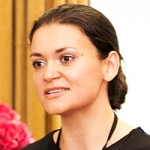

Mihaela Nita- MD, IBCLC, medical doctor (since 2007), specialized in pediatrics and International Board Certified Lactation Consultant (since 2011), worked mainly to develop the profession of IBCLC in Romania. Organizer of the first IBCLC Day in Romania, is the co-founder and president of Romanian Lactation Consultant Association, member of ELACTA. Active in the field of lactation, organizing conferences, events, support groups, 90 hours training courses, CERPs accredited courses, fundraising events. On behalf of the Romanian Lactation Consultant Association, Mihaela Nita started the first volunteer work in the country, in the NICU of Marie Curie Emergency Children Hospital in Bucharest that led to the idea of implementing a human milk bank. Mihaela is passionate about training, advocating for the IBCLCs role and making a change for mothers, society and medical system in the field of lactation.
Romania is one of the European countries with a very low breastfeeding rate. The emergence of IBCLCs in the past 2 decades helped in improving mothers access to lactation professionals. Starting from 2013 with the first celebration of IBCLC Day, conferences and courses, the awareness of a new profession raise.
Although in Europe there are more than 200 human milk banks, Romania does not have one.
The limitations in the process of implementing a human milk bank in the NICU, the gap of legislation, the support of the civic society and 2 cases are discussed in the presentation.

View Details / Enroll
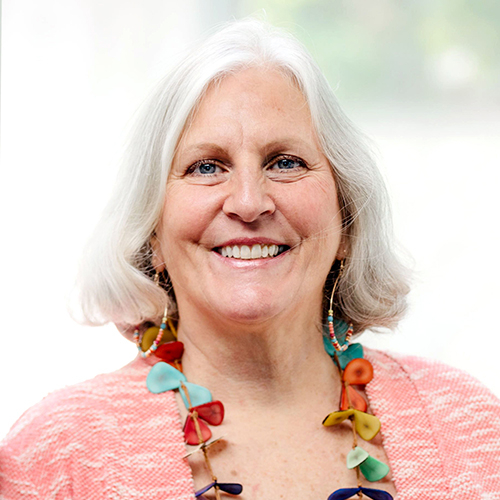
Gamechangers: New studies that will change the way we think about tongue-tie

Dr. Hazelbaker has been a therapist in private practice for over 30 years. She specializes in cross-disciplinary treatment and to that end has taken training in several modalities to best assist her clients. She is a certified Craniosacral Therapist, a Lymph Drainage Therapy practitioner, a Tummy Time™ Trainer, a Haller Method practitioner, A Pre and Perinatal Psychology Educator, a Lactation Therapist Diplomate, an International Board Certified Lactation Consultant and a fellow of the International Lactation Consultant Association.
She earned her Master’s Degree from Pacific Oaks College (Human Development specializing in Human Lactation) and her doctorate from The Union Institute and University (Psychology, specializing in Energetic and Transformational healing.)
People recognize her as an expert on infant sucking issues caused by various structural problems like torticollis, plagiocephaly, brachycephaly and tissue shock-trauma. She invented the Hazelbaker™ FingerFeeder and the Infant Breastfeeding CranioSacral Protocol™ to assist in the resolution of this type of infant sucking dysfunction.
Topic: Cranial Nerves: A Critical Component of the Process of Breastfeeding - [View Abstract]
Topic: Creating Flow: Using Lymphatic Drainage Therapy for Breastfeeding Issues - [View Abstract]
Topic: Finger Feeding: What Do We Know? What Should We Know? - [View Abstract]
Topic: Gamechangers: New studies that will change the way we think about tongue-tie - [View Abstract]
Topic: Infant Trauma: Impact on Breastfeeding - [View Abstract]
Topic: The Faux Tie: When is a "Tongue-tie" NOT a Tongue-tie? - [View Abstract]
Topic: The Impact of Bodywork on Infant Breastfeeding - [View Abstract]
Topic: What Does Torticollis Have to do with Breastfeeding? - [View Abstract]
This presentation examines several influential recent studies that will change the way we think about tongue-tie; the manner in which we examine, treat and perform therapy on babies. From the overall perspective of development, Dr. Hazelbaker looks at histology, speech development, posture, wound healing, lasers and airway integrity, citing the most exciting studies on these subjects, explaining how each will impact our philosophical, intellectual and clinical involvement with study findings. Further, Dr. Hazelbaker makes suggestions of how these various studies should guide our thinking about when and how to assess and treat tongue-tied infants.
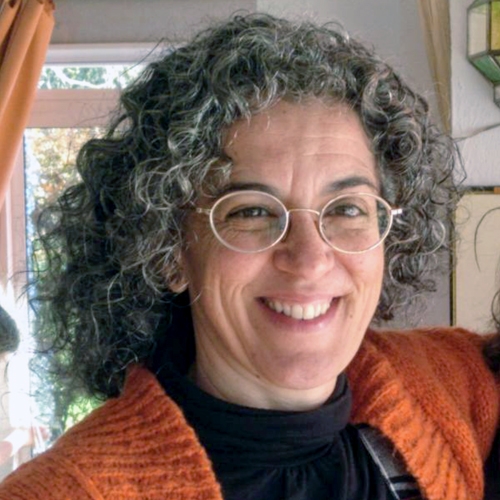

Carmela is a family medicine MD, bachelor´s degree in Public Health Education, and IBCLC since 2005. She is also a BFHI Evaluator and the co founder and past president of the Spanish Lactation Consultant Association (AECCLM). She works in a private Family Wellness Clinic, Raices, as person in charge of the lactation program, which includes two IBCLCs attending breastfeeding families and an extensive offer of breastfeeding training for health care professionals and breastfeeding peer counsellors. The team has trained over three thousand doctors, midwives and nurses from both the Spanish National Health Service and the private sector in Spain. She is a frequent lecturer at national conferences, and has also lectured internationally, both on-site and online. She is the author of several scientific papers on breast pain, mastitis and tongue tie. She is also the author of a breastfeeding/parenting book, “Amar con los Brazos Abiertos” (To Love with Open Arms). She is married to Carlos and they homeschool their four children.
Topic: Assessment and Management of Mastitis - [View Abstract]
Topic: Getting Milk Production off to a Good Start - [View Abstract]
Topic: Management of Chronic Breast Pain: Holistic Approach - [View Abstract]
Topic: The Art and the Science: A Critical Look at the Physiology and Management of Mastitis - [View Abstract]
The most frequent cause of weaning worldwide is mother´s feeling that she does not have enough milk or that her infant is hungry despite her efforts… and frequently this perception becomes a reality. What support systems and clinical strategies can we use to protect mother´s normal capacity for milk production?
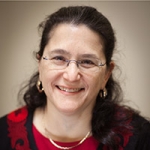
Getting Milk to Babies: Social, medical, economic and commercial forces

Naomi Bar-Yam, PhD, ACSW, has been working in maternal and child health for over 30 years as an educator, researcher, advocate, and writer. She is the immediate past president of the Human Milk Banking Association of North America (HMBANA) and the founding director of Mothers’ Milk Bank Northeast, which provides safe donor milk to hospitals and families throughout the northeastern US. An expert on access to perinatal health care and policies that support breastfeeding, she has been a consultant to the Centers for Disease Control (on a panel that created “The CDC Guide to Breastfeeding Interventions”), to the United States Breastfeeding Committee (developing an issue paper addressed to CEOs and legislators on breastfeeding and the workplace), and to the March of Dimes (developing educational material for women and families who are medically and socially vulnerable to high-risk pregnancy). She also developed a curriculum for hospital personnel about combining breastfeeding with their work. She reviews articles submitted to the Journal of Human Lactation, Breastfeeding Medicine, and other publications related to breastfeeding, milk banking, and access to perinatal child care. As Executive Director of Mothers’ Milk Bank Northeast, she is thoroughly versed in the technical, procedural, and ethical aspects of milk banking. She often speaks at professional conferences, hospital staff trainings, and grand rounds about milk banking and breastfeeding policies.
Topic: Ethical Concerns in Human Milk Exchange - [View Abstract]
Topic: Getting Milk to Babies: Social, medical, economic and commercial forces - [View Abstract]
Topic: The Whys and Hows of Using Banked Donor Milk - [View Abstract]
Successful infant feeding is crucial to the survival of babies and the human race. Throughout history and across the world, societies have had to address alternatives to maternal breastfeeding. We will present an overview of the history of infant feeding, including the forces involved in the decline of breastfeeding and wet nursing and the rise of “scientific” infant feeding, commercial infant formulas and milk banking. We will also define and discuss milk kinship practiced in Islam and throughout the Far East and Middle East. We will cover as well the forces and organizations involved in the rise of breastfeeding, milk sharing, and milk banking over the last 2-3 decades, and the social, economic and commercial forces impacting infant feeding today. We will conclude with a discussion of how history can help us understand and influence future trends.
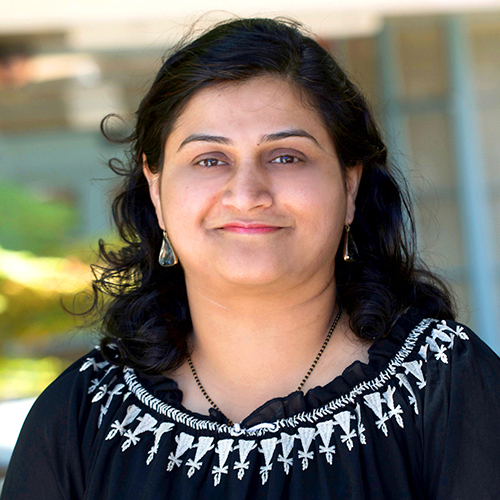

Consultant neonatal pediatrician with special interest in neonatal nutrition, probiotics, gut-brain-microbiota axis and long-term neurodevelopment. Dr Jape leads the high-risk neonatal follow-up program for her tertiary referral institute. Currently the chair for the Perinatal Society of Australia and New Zealand long-term outcomes sub-committee. Dr Jape is Clinical Associate Professor at the School of Medicine, University of Western Australia. Dr Jape is reviewer for national and international medical journals.
Topic: Critical Congenital Heart Disease: A Guide to Screening & Management - [View Abstract]
Topic: Gut-Microbiota-Brain Axis in Neonates and Infants - [View Abstract]
Recent advances in next generation sequencing have improved our understanding of the important role of gut microbiota in influencing brain development and function; i.e: 'gut-microbiota-brain' (GMB) axis. This is a bi-directional pathway where brain and gut microbes share detailed communications through immunological pathways, hormones and metabolites. GMB plays a crucial role in early brain development and function and impacts on long-term neurodevelopment and neurobehaviour. Understanding these roles is important to understand effective management and potentially prevention. This presentation will cover important aspects of GMB development, physiology, function and translation in clinical medicine for neonates and infants.

Healthy Babies: What We Can Learn from Infant Growth Charts

Dr. Gangal is a Pediatrician, Breastfeeding Trainer & Advocate in Mumbai for 30 years. He has been Mother Support-Training Coordinator of BPNI Maharashtra (1995), Co-Coordinator of Mother Support Working Group of WABA (2003) & Lactation Consultant (2009). He was chairman of Global Collaboration Committee of ILCA (2018).
He was trained by Dr. Felicity Savage. He established the first Mother Support Group in India (1995) and played a key role in training 500 Traditional Massage Women, Breast crawl rejuvenation, training Government Health Workers in 7 Indian States with an innovative module with UNICEF and organizing IBLCE exam for the first time in India (2009). He contributed to LLLI publication ‘Hirkani’s Daughters’, facilitated Lactation Counselling in 85 Maternity Facilities, organizing 8 batches of Lactation Education to facilitate about 100 Lactation Consultants, the creation of the Android app ‘Shishuposhan,’ and played a major role in launching the website www.bpnimaharashtra.org.
Dr. Gangal has multiple publications & was a speaker at LLLI conferences in San Francisco and Chicago. He was honored with Dr. N. B. Kumta Award by BPNI Maharashtra, Lifetime Achievement Award by Mumbai Breastfeeding Promotion Committee & WABA Secretariat award. He spoke on Breast Crawl & WHO Growth Charts (2016) at GOLD Conferences.
Infancy is a period of rapid growth & development. Any adversity has a profound impact on physical, mental & psychological outcomes for entire life. Growth Charts are the meter of infant’s Nutrition-Health-Nurturing & reflect any adversity. Hence, tracking infant growth is important.
The World Health Organization (WHO) released new international growth standards in 2006 to monitor growth of children 0-59 months of age. All Health Care Providers should use these charts to complement Infant & Young Child Nutrition (IYCN) Counselling. Every growth chart has a story to tell. I found WHO growth charts to be accurate and extremely useful for knowing past events and use the information to promote optimal growth and development in future. Every contact with the child in general & especially immunization is an opportunity to discuss nutrition & development. The concepts of Severe Acute Malnutrition and Mild Acute Malnutrition (SAM-MAM) need to be understood.
The Infant feeding professionals should also understand science behind WHO Growth Charts and how to use this information for ideal IYCN Counselling. Prematurely born infants need different charts for monitoring growth during infancy & experts need to be aware about the current concepts & opinions of monitoring growth of Premature & Low Birth Weight infants. Impact of individual components of breastmilk on growth is the new science frontier.

View Details / Enroll
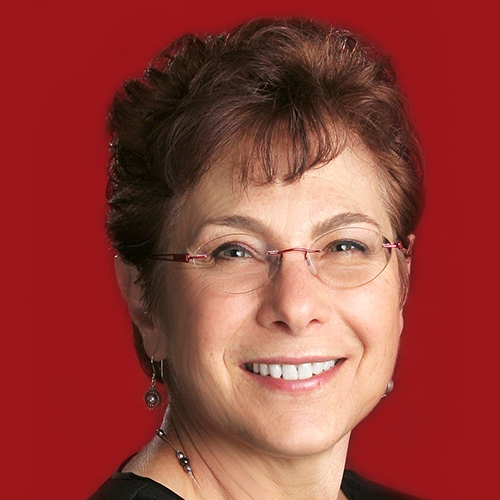
Helping Premature Babies Learn to Breastfeed: We Can Do It!

Robin P. Glass, MS, OTR, IBCLC practices occupational therapy at Seattle Children's Hospital in Seattle, WA and is an Assistant Clinical Professor in the Department of Rehabilitation, at the University of Washington. Her clinical specialty is the treatment of infants, with a strong focus on feeding and swallowing issues. She provides treatment for hospitalized infants including the NICU with a wide range of medical and developmental diagnoses. She is NDT trained and is a 20 year Board Certified Lactation Consultant. Robin has extensive national and international experience speaking about infant feeding.
Robin has received numerous awards including the National Association of Neonatal Therapists (NANT) 2015 Pioneer Award and the 2018 Nancy Danoff Spirit of Service award from the Breastfeeding Coalition of WA and Nutrition First. Robin has co-authored numerous journal articles as well as the book Feeding and Swallowing Disorders in Infancy: Assessment and Management.
Topic: Optimizing the Feeding Abilities of Premature Infants to Support Breastfeeding - [View Abstract]
Learning to breastfeed is the optimal and ideal method of feeding for any baby. For the baby born prematurely, however, there are factors related to the infant, to the environment and to the mother that can make this process more challenging. Many mother-baby dyads often leave the NICU not fully breastfeeding and continue to struggle once at home. This presentation will describe systematic, evidence based approaches to developing breastfeeding in the premature infant. It will review developmental and co-morbid factors affecting the infant’s feeding acquisition. A model pathway to develop breastfeeding will be outlined and this can serve as a template for varying NICU’s.

View Details / Enroll
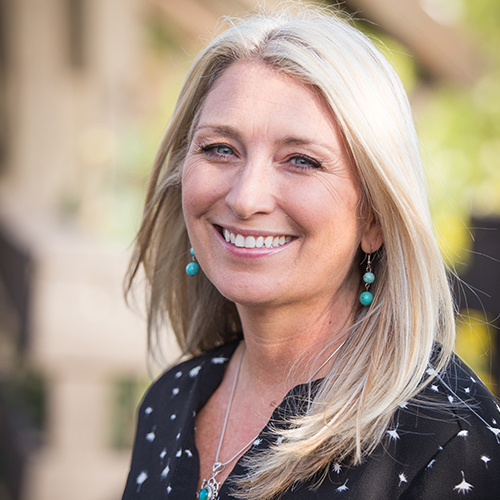
Hold the Phone! Diet Does Matter During Breastfeeding: Implication of Diet on Fatty Acid Composition and Other Nutrients

Laurel Wilson, IBCLC, CLE, CCCE, CLD is a TEDx and international speaker, author, pregnancy and lactation expert, and consultant. She served as the Executive Director of Lactation Programs for CAPPA, the Childbirth and Postpartum Professional Association for 16 years and now is on the Senior Advisor Board. She served on the Board of Directors for the United States Breastfeeding Committee from 2016-2019. She also is on the Advisory Board for InJoy Health. She owns MotherJourney, focusing on training perinatal professionals on integrative and holistic information regarding pregnancy, childbirth, and breastfeeding. She has her degree in Maternal Child Health: Lactation Consulting and is an internationally board certified lactation consultant. As the co-author of two books, The Attachment Pregnancy and The Greatest Pregnancy Ever, original Editor of the CAPPA Lactation Educator Manual, and contributing author to Round the Circle: Doulas Talk About Themselves, she loves to blend today’s recent scientific findings with the mind/body/spirit wisdom. Laurel has been joyfully married to her husband for nearly three decades and has two wonderful grown sons, whose difficult births led her on a path towards helping emerging families create positive experiences. She believes that the journey into parenthood is a life-changing rite of passage that should be deeply honored and celebrated.
Topic: Epigenetics and Breastfeeding: The Potential Longterm Impact of Breastmilk - [View Abstract]
Topic: Hold the Phone! Diet Does Matter During Breastfeeding: Implication of Diet on Fatty Acid Composition and Other Nutrients - [View Abstract]
Topic: Postpartum Mood Disorders, Breastfeeding and the Epigenetic Links from Past Into Future - [View Abstract]
Topic: Talk To Me: How Breastmilk Acts as a Communication and Gene Expression Tool Between Mother and Child - [View Abstract]
Topic: The Milk Sharing Conundrum - The Grey Area Between Scope and Need - [View Abstract]
Topic: The Placenta and Breastmilk-Unraveling the Mysterious World of the Intelligent Organs that Protect our Babies - [View Abstract]
Topic: Understanding Zika and Lyme and Breastfeeding - [View Abstract]
Topic: Unraveling the Mysteries of Human Milk: The Fascinating Role of Neohormones, Epigenetics, the Microbiome and More! - [View Abstract]
For more than a decade most lactation professions have been suggesting to families that diet matters very little in terms of breastmilk composition. We have told parents that they can essentially eat whatever they want, it does not matter to the bottom line. However, new studies imply that in fact, diet does matter in terms of the composition of fatty acids and essential nutrients available in milk that can potentially impact life long health. Studies also show that changes in diet can lead to gene methylation which impacts gene expression, as well changing the oligosaccharide profile which shapes the microbiome. This presentation takes you on a tour of some recent research finds to better understand how maternal diet (potentially prenatally through lactation) DOES play a role in breastmilk and how a parent’s diet can potentially influence a breastfeeding baby’s health.

View Details / Enroll
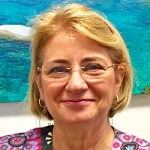
How B.E.S.T. (Basic Evaluation of Structural Tension) Relates to Breast©

Judy Terwilliger is a Clinical RN Therapist with Pediatric experience for over 30 years. As lead therapist, researcher and educator in her proprietary form of functional mobility therapy (Functional Bowen™), she works with allied health care providers in the resolve of hidden structural barrier challenges for infants and children. Her collaborative, integrative team care approach sees many successes. She is committed to equipping families with the tools necessary in support of breastfeeding and enabling parents to participate in the resolve of their children’s structural challenges. She is a member of the National Society of Pediatric Nurses and was a nominee in the 2013 Clinical Excellence in Practice Award. She has been a speaker at the Northern California Placer County Breastfeeding Coalition, Imperial Valley Breastfeeding Summit and presented at the 2016 California Breastfeeding Coalition. Her professional memberships include: ABM Network, International Pediatric Integrative Medicine Network, IATP, and Breastfeeding USA. Judy is a licensed continuing education provider for the National Certification Board for Therapeutic Massage & Bodywork, California Board of Registered Nurses, The California Physical Therapy Association, and the International Board of Lactation Consultant Examiners.
This lecture/course is intended to familiarize the medical and allied health community in the recognition of the often-overlooked muscle-related structural barriers to breastfeeding. It provides a discussion of clues to the predisposing factors of these barriers and explores their affect on infant "functional mobility" as it relates to the achievement of successful breastfeeding. It is intended to improve the clinician’s assessment skills as they work with the mother/infant dyad in resolving breastfeeding difficulties/dysfunctions by development of insight into these often hidden and profoundly destructive structural manifestations. Recognition of these barriers with an emphasis on self-help techniques and when/who to refer parents/caregivers to for help, together with how to best meet their teaching/training needs across cultural barriers, is discussed. The ultimate purpose is the achievement of insight to improve the clinician’s evaluation process, better enabling them to promote, enhance and even save the breastfeeding experience of the families served.

View Details / Enroll
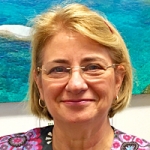
View Details / Enroll




